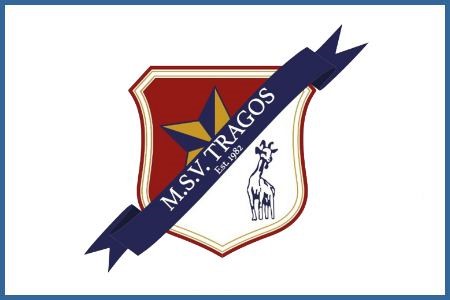Prizewinners of Maastricht University's 42nd Dies Natalis
True to tradition, the Wynand Wijnen Education Prize, the Dissertation Prize and the Student Awards for the best bachelor's and master's theses were awarded on Friday, during UM's Dies Natalis celebration.
2017 Wynand Wijnen Education Prize
Dr Nynke de Jong was this year's prizewinner. Nynke is associated with the Health Services Research research group and was praised for her decisive and energetic innovations in the FHML's bachelor's and master's programmes. Nynke is greatly knowledgeable on (technical) innovations and knows how to convincingly convey this knowledge to the teaching staff. She manages to inspire students through her driven and enthusiastic manner of teaching. She knows how to make optimal use of all that's available in electronic learning environments, thus advancing the efficiency and effectiveness of the study process. 'Nynke impressed us with the broadness of her projects, the applicability outside the Faculty and the enthusing manner of her teaching', stated the jury's report.
The Wynand Wijnen Education Prize is presented annually as a tribute to Wynand Wijnen, a professor of didactics who passed away in 2012. In addition to considerable national achievements in the field of education reform, he helped lay the foundations of Problem-based Learning at Maastricht University.
2017 Dissertation Prize
Each year UM awards a prize for the best thesis that was defended in that calendar year. The faculty deans nominated five theses and the winner of the 2017 Dissertation Prize is Mark Podesta, with his thesis entitled 'Time dependent verification of dynamic external beam radiotherapy'. In his thesis he demonstrates how and why radiotherapy could and should be verified dependent on time, resulting in a better treatment for patients. Mark has tested his method clinically and his work led to a successful collaboration with the medical industry, which introduced his method in radiotherapy clinics. The jury praised Podesta for his enthusiastic collaboration with other researchers, the quality of his thesis and the perspective of improving patient care in particular.
Best master's theses
The master's students who achieved the highest marks for their final theses in 2017 were presented with the 2017 Student Award during the academic session. The winning master's students are:
Maurice Halder, Faculty of Health, Medicine and Life Sciences
Thesis title: 'Arterial remodelling: a key player in cardiovascular diseases'
Ilse de Lange, Faculty of Health, Medicine and Life Sciences
Thesis title: 'Chorioamnionitis and the fetal gut: studying sterol signalling in the context of perinatal stress'
Esmée Driessen, Faculty of Law
Thesis title: 'De juridische knelpunten bij de uitvoering van het Right to Challenge in het sociaal domein. Een onderzoek naar de democratische legitimatie, financiering en rechtsbescherming van het Right to Challenge in Nederland' (Legal bottlenecks when implementing the Right to Challenge in the social domain. A study of the democratic legitimisation, financing and legal protection of the Right to Challenge in the Netherlands).
Sebastiaan Boos, School of Business and Economics
Thesis title: 'Understanding IT security compliance behaviour'
Niels Mourmans, School of Business and Economics
Thesis title: 'Reasoning about the surprise exam paradox: Common belief in future rationality in psychological games'
Lea Beiermann, Faculty of Arts and Social Sciences
Thesis title: 'Microscoptical Science'
Robin Schormans, Faculty of Arts and Social Sciences
Thesis title: 'Conscious choice? A dramaturgical inquiry into the creation and negotiation of credibility surrounding the Dutch choices'
Diederik van Duuren, Faculty of Humanities and Sciences
Thesis title: 'Potential transformative changes in water provision systems. Historical and future transition analysis of decentralised water systems in Limburg, the Netherlands'
Leonie Hentrup, Faculty of Psychology and Neuroscience
Thesis title: 'Charismatic leadership in context: Awe inducing environments influence leader perceptions'
Also read
-
Heerlen, Maastricht, and Sittard-Geleen will continue the services for the Euregional and international labour market in South Limburg for an extended period. Maastricht University actively supports in attracting and retaining Euregional and international talent."
-
Dutch universities have jointly announced measures to manage the intake of international students and enhance Dutch language proficiency. Maastricht University is committed to finding tailored solutions that align with both the university and its environment.


